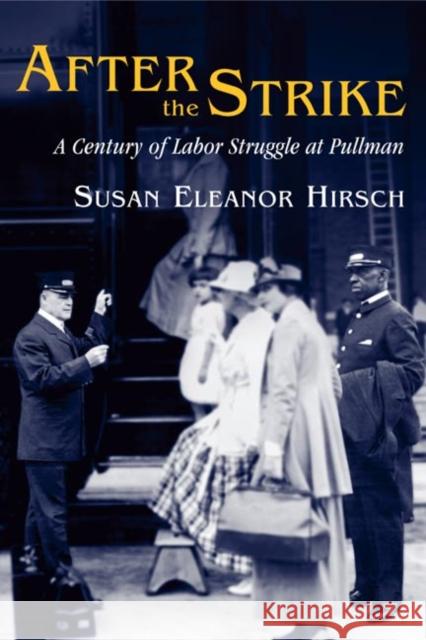After the Strike: A Century of Labor Struggle at Pullman » książka
After the Strike: A Century of Labor Struggle at Pullman
ISBN-13: 9780252027918 / Angielski / Twarda / 2003 / 320 str.
After the Strike places two important episodes in American labor history, the 1894 Pullman strike and the rise of the Brotherhood of Sleeping Car Porters, into a new perspective - the century-long development of union organizing and labor-management relations in the Pullman Company. Connecting the stories of Pullman car builders and porters takes us to the heart of critical questions about American society: What created job segregation by race and gender? What role did such segregation play in shaping the labor movement? Susan Eleanor Hirsch illuminates, as have few others, the relationship between labor organizing and the racial and sexual discrimination practiced by both employers and unions. Because the Pullman Company ran the sleeping-car service for American railroads and was a major manufacturer of railcars, its workers were involved in virtually every wave of union organizing from the 1890s to the 1940s. In exploring what the years of struggle meant for the men and women of the Pullman Company, After the Strike also reveals the factors that determined the limited success and narrow vision of most American unions.











